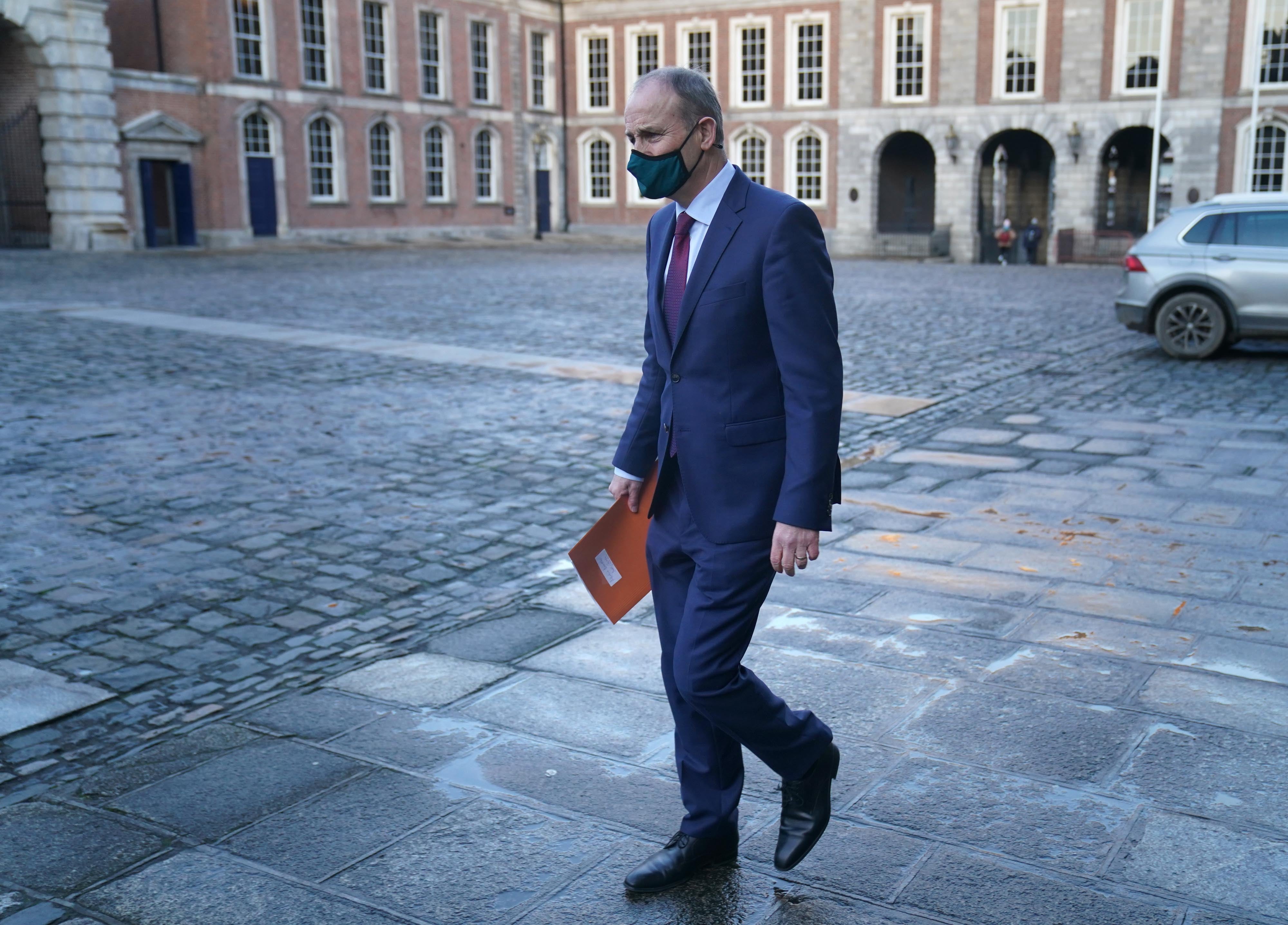Taoiseach says carbon taxes hike has ‘little’ to do with rise in cost of living
Micheal Martin rejected calls to scrap the planned carbon tax rise.

Your support helps us to tell the story
From reproductive rights to climate change to Big Tech, The Independent is on the ground when the story is developing. Whether it's investigating the financials of Elon Musk's pro-Trump PAC or producing our latest documentary, 'The A Word', which shines a light on the American women fighting for reproductive rights, we know how important it is to parse out the facts from the messaging.
At such a critical moment in US history, we need reporters on the ground. Your donation allows us to keep sending journalists to speak to both sides of the story.
The Independent is trusted by Americans across the entire political spectrum. And unlike many other quality news outlets, we choose not to lock Americans out of our reporting and analysis with paywalls. We believe quality journalism should be available to everyone, paid for by those who can afford it.
Your support makes all the difference.The Taoiseach has said the planned increase in carbon taxes has “very little to do with” the rise in the cost of living.
Micheal Martin rejected calls to scrap the planned carbon tax hike, saying the Government will introduce different measures to tackle the jump in living costs.
Mr Martin told the Dail that the Government has to “cushion the blow” of the inflationary cycle, particularly for those most in hardship and at risk.
He made the comments in response to Sinn Fein president Mary Lou McDonald who called for the Government to abandon its plans to increase carbon tax due to take effect in May.
During leaders’ questions, Ms McDonald claimed the hike will increase gas bills and push home heating oil costs up “substantially”.
However, Mr Martin defended the plans, saying it has little to do with a jump in fuel and energy bills.
“This time last year indeed, a barrel of oil on international markets traded at 61 US dollars. Today it’s at 91 US dollars,” Mr Martin added.
“That wasn’t caused by carbon tax. That is a global phenomenon.
“So let’s not try and misrepresent the issue for the public out there who are watching.
“A litre of petrol cost has risen 38% over the same period, an increase of 28%.
“Gas prices in international markets have nearly quadrupled over the past year.
“The average annual gas bill has risen by 700 euros.
“And again, all of that, vast majority of that, has very little to do with carbon tax.”
This hike will increase gas bills and push home heating oil costs up substantially at a time when people are struggling.
Ms McDonald said: “We’ve called on you to scrap your planned carbon tax hike.
“This hike will increase gas bills and push home heating oil costs up substantially at a time when people are struggling.
“Carbon tax hikes add to the cost of everything, particularly food due to increased transport costs and farmers have been telling you this for a long time but you just haven’t listened.
“Hiking carbon taxes is the wrong call at the wrong time.
“Your 100 euro credit is far too little for far too many families.
“And March is very far away for people who can’t afford their energy bills today.”
Mr Martin added: “We’ve got to cushion the blow of this inflationary cycle, cushion the blow for those most in hardship, those most at risk.
“We’ve got to target the measures that government is currently examining to do just that.
“And that’s what we intend to do and to alleviate people more generally, in terms of these pressures.
The poverty of imagination from government is awfully baffling
“The Government has a number of measures under consideration to help people over and above what we’ve done already.”
Ms McDonald accused the Government of “delaying and dithering” and proving a lack of clarity for those who are struggling to pay bills.
Labour’s Ged Nash also hit out at the Government, and called for a rise in wages.
“The poverty of imagination from government is awfully baffling,” Mr Nash added.
“So far, the only tangible practical proposal from government is a tokenistic 113 euros off the payment for electricity bills.
“That may be increased of course, we don’t know yet.
“But it’s a drop in the ocean compared to the rising costs that people face.”
“Now for those on low and fixed incomes.
“The only action that will really help is an increase to wages.
“Over 20% of Irish workers are low paid, and we spend billions every year subsidising low pay to lift people out of poverty wages.”